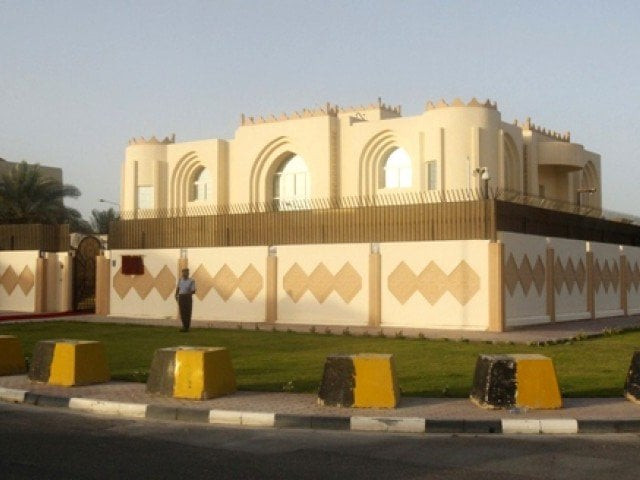Neighbourhood watch: Afghan Taliban uphold Qatar office’s authority amid peace talks
Leaders from the group distance themselves from peace talks in Urumqi

A file photo of the Taliban political office in Qatar. PHOTO: REUTERS
For many members of the group, Pakistan’s sponsored dialogue is an attempt to discredit the authority of its Qatar office.
In response, the Taliban leadership council said no one had granted them permission to discuss political affairs with anyone as a representative of the Islamic Emirate or the political office. Furthermore, the council said the political office has been responsible for handling all internal and external political activities related to the Islamic Emirate since the inauguration. As a result, only the Qatar office can represent the group in all deliberations with the international community, intimated the council.
This principle has been reiterated time and again by various Taliban leaders. During a statement issued last year, Mullah Muhammad Omar said no one apart from the political office in Qatar could handle the group’s contact with the rest of the world. According to the Taliban leader, any group or person who tried to do so otherwise was motivated by self-interest and material gains.
The message served as proof that the Afghan Taliban is reluctant to compromise on the authority of their political office. All stakeholders in the peace process must not deviate from this process.
Unauthorised
Nonetheless, three Taliban leaders who had not been authorised to represent the group arrived in Urumqi to hold talks with an Afghan delegation led by Afghan High Peace Council Secretary Masoom Stanekzai.
Deputy of the former Taliban ruling council Mullah Hassan, former interior minister in the Taliban cabinet Maulvi Abdul Razaq and former Taliban deputy foreign minister Mullah Abdul Jalil attended the dialogue. However, these leaders were not authorised by the Qatar office.
On the other hand, other leaders have been reluctant to negotiate with the Kabul administration. Over the past three months, Taliban leaders who are a part of the Qatar process have attended at least four unofficial meetings with Afghan leaders. However, they are no longer willing to negotiate with Ghani’s regime despite numerous efforts by Pakistan and China.
The Pakistan factor
At this critical juncture, the Kabul administration is unwilling to make the mistake of involving itself with unauthorised Taliban leaders. In the past, the Afghan government’s attempts to reach a compromise with the group have not produced the desired result. Former president Hamid Karzai had previously committed the blunder of trying to persuade the Taliban to engage in peace talks with him. However, in 2010, it turned out that an imposter based in Quetta had deceived Nato chiefs and Karzai into thinking he was Taliban leader Mullah Akhtar Mansoor.
In Pakistan
After Foreign Affair Adviser Sartaj Aziz had informed a parliamentary committee that Pakistan had spearheaded the negotiations in Urumqi, a spokesperson of the Pakistan Foreign Office also endorsed the adviser’s claim.
During his weekly briefing, Foreign Ministry Spokesperson Qazi Khalilullah said Pakistan had facilitated the first meeting and is likely to play an active role in organising the second meeting. According to Khalilullah, details of the second meeting are being discussed with Afghan officials.
Conventional wisdom would have us believe that Pakistan exercises a powerful influence on the Taliban and can determine the fate of democracy, peace and stability in Afghanistan.
However, it would be unfair to say Islamabad exercises control over the Afghan Taliban. On the contrary, the country’s involvement is largely influenced by promises made by military leaders to Afghan President Ashraf Ghani to encourage the Taliban to join the peace process.
Pakistan is trying to keep its promises even though its efforts to bring Qatar-based Taliban to the negotiation table have failed.
According to the Afghanistan Strategic and Regional Studies Centre, the Taliban’s growing political activities could be viewed as a rejoinder to mounting pressures it is receiving from Pakistan.
In a report issued last week, the centre said visits by Taliban leaders to other countries – particularly Iran – indicate they are trying to distance themselves from Pakistan and establish stronger relations with other countries.
Published in The Express Tribune, June 27th, 2015.



















COMMENTS
Comments are moderated and generally will be posted if they are on-topic and not abusive.
For more information, please see our Comments FAQ